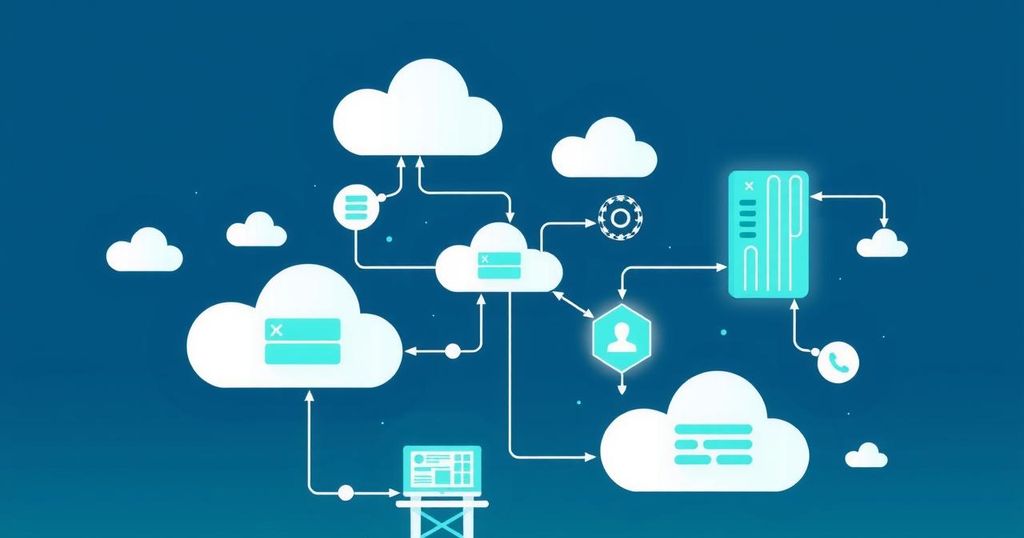Pie Insurance’s Tech-Driven Approach Led to Early Adoption of AI in Claims
Pie Insurance, recognized for its niche in workers’ compensation and commercial auto insurance, is integrating artificial intelligence into its claims processing. Carla Woodard, senior vice president of claims, discusses the company’s shift from third-party management to an in-house approach, leveraging AI for document analysis, customer interactions, and overall efficiency. The company aims to enhance service delivery for small businesses over the next few years while monitoring success through various metrics.
Pie Insurance, a player in the insurtech game, has fully embraced AI to streamline its claims process. Founded in 2017 in Denver, Colorado, the company has distinguished itself by focusing on workers’ compensation and commercial auto insurance specifically for small businesses. With a data-driven approach, Pie aims to make insurance more accessible and affordable. Now, it’s integrating cutting-edge AI technology across its claims operation, resulting in more efficient processes and better customer service.
Recently, Claims Journal caught up with Carla Woodard, Pie Insurance’s senior vice president of claims, who has been with the company since 2022. Having spent 14 years in various managerial roles at workers’ comp carrier Employers, she’s no stranger to the challenges within the claims landscape. Edited excerpts from the discussion reveal insights into how Pie is positioning itself in the tech-driven insurance sector.
The company, initially relying on a Third Party Administrator (TPA) for claims, is evolving its strategy. Woodard explained, “We’ve turned our focus to managing everything in house.” They’ve adopted the cloud-based claims platform, Origami Risk, designed to enhance automation, improve data capture, and boost real-time decision-making capabilities.
One of the innovative approaches includes leveraging AI to summarize large documents, providing actionable insights while ensuring jurisdictional compliance. Woodard noted, “Our data science team is working on that right now.” They’re also exploring the use of natural language processing to evaluate the quality of telephonic interactions. This technology aims to resolve customer queries efficiently, speeding up simple transactions, while a broader automation initiative will enhance data ingestion from various sources into their system.
The motivation behind these technological changes is straightforward — to simplify the claims experience. According to Woodard, “The goal is to deliver on Pie’s mission…to make commercial insurance and the claims experience as easy and seamless as possible for our small businesses.” With this improved technology, Pie aims to enhance customer service and ensure more consistent claims handling.
As for the implementation’s progress, Woodard mentioned they’re still in the early phases but are already noticing benefits such as better data fields and automation rules for fraud detection. She sees this as a stepping stone, with a long-term goal of AI driving decisions throughout the entire claims lifecycle.
Currently, Pie’s claims platform is in its Minimum Viable Product (MVP) phase. Woodard expressed optimism about the foundational capabilities already yielding results, stating that they expect to roll out more features over the next two to three years, including enhancements to document processing and fraud detection.
The response from employees has been largely positive. Woodard shared that claims professionals are excited about how automation will ease their daily tasks. They foster a collaborative environment to guarantee feedback from diverse professionals, allowing for a better grasp of platform needs and facilitating acceptance of new tools.
In her closing thoughts, Woodard emphasized her confidence in the technology’s potential, declaring, “I’m excited to get moving on it as quickly as possible.” Measuring success will hinge on various metrics: improvements in user experiences and claims outcomes, along with automation effectiveness and data availability for reporting needs.
Pie Insurance’s tech-driven adaptation signifies a critical shift in the industry, positioning it well for the future. As they integrate AI deeper into their operations, it seems they’re poised to lead the charge for better claims experiences for small businesses.
In summary, Pie Insurance is transforming its claims process through innovative AI technologies aimed at streamlining operations. By moving from a Third Party Administrator to in-house claims management, the company is set on enhancing customer experiences and operational efficiencies. Carla Woodard’s insights indicate that Pie is just at the beginning of this journey, looking to further integrate AI and achieve measurable improvements in the coming years. This shift not only highlights the growing role of technology in insurance but also the commitment to serving small businesses effectively.
Original Source: www.claimsjournal.com




